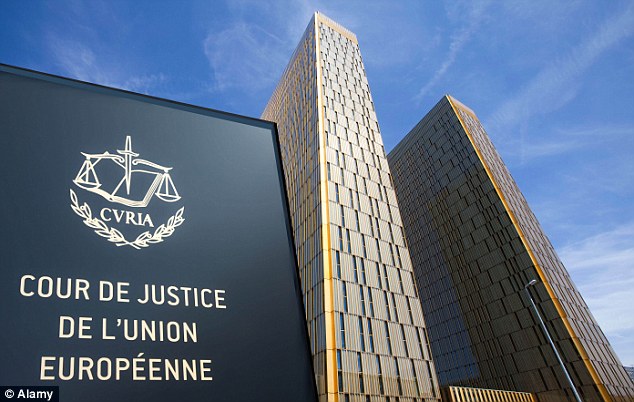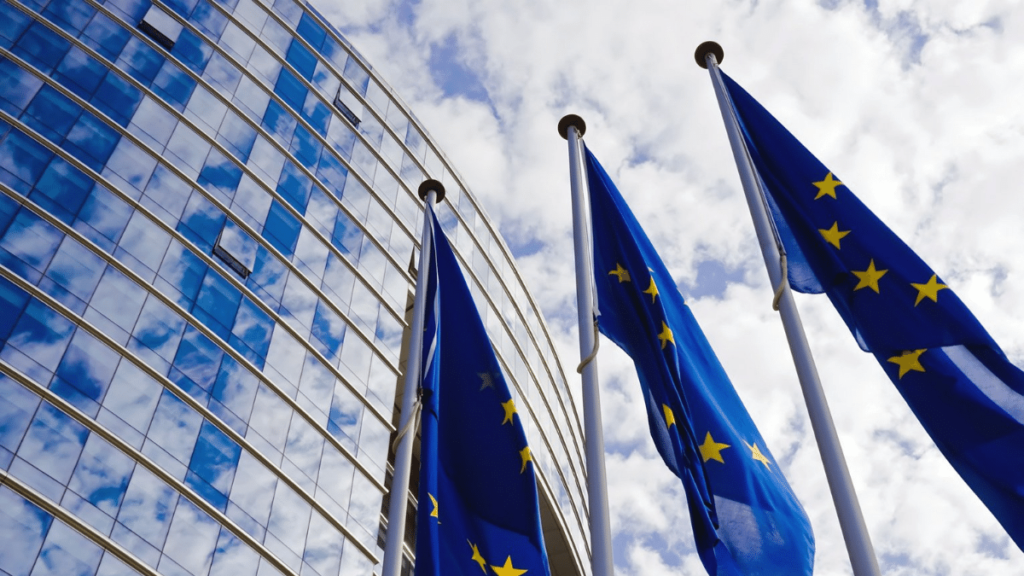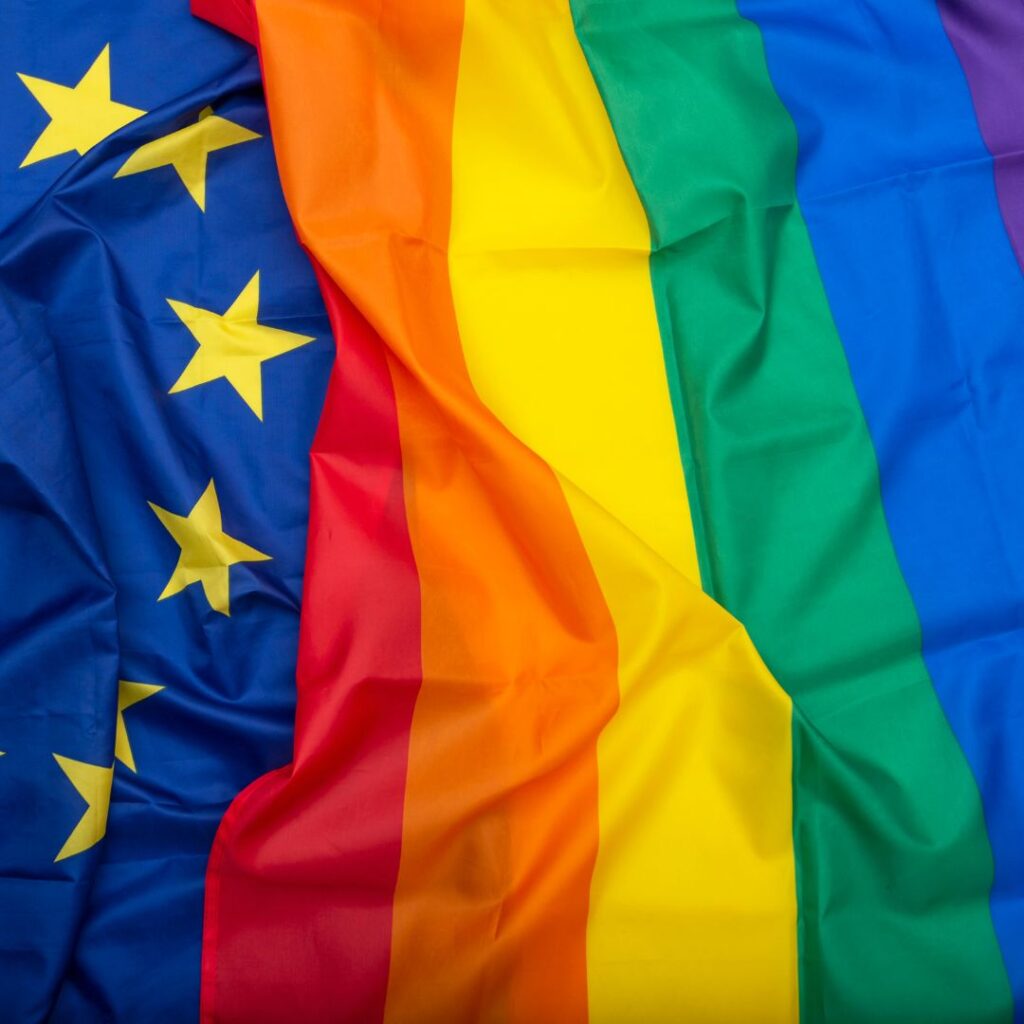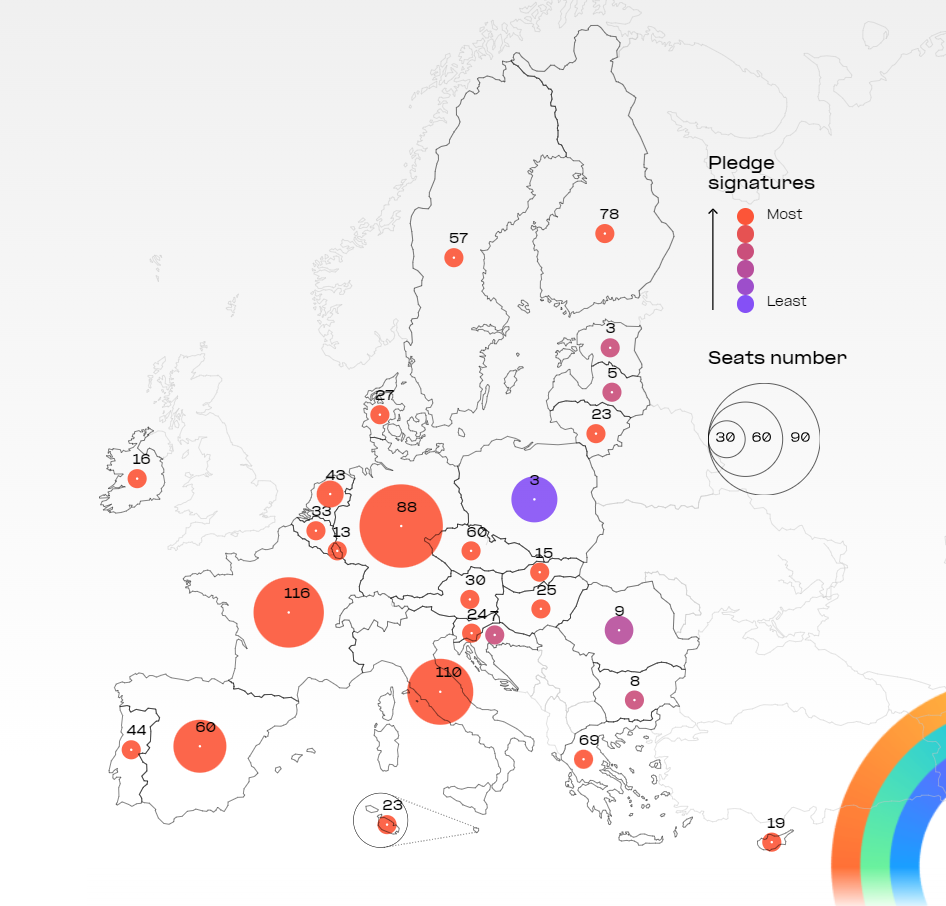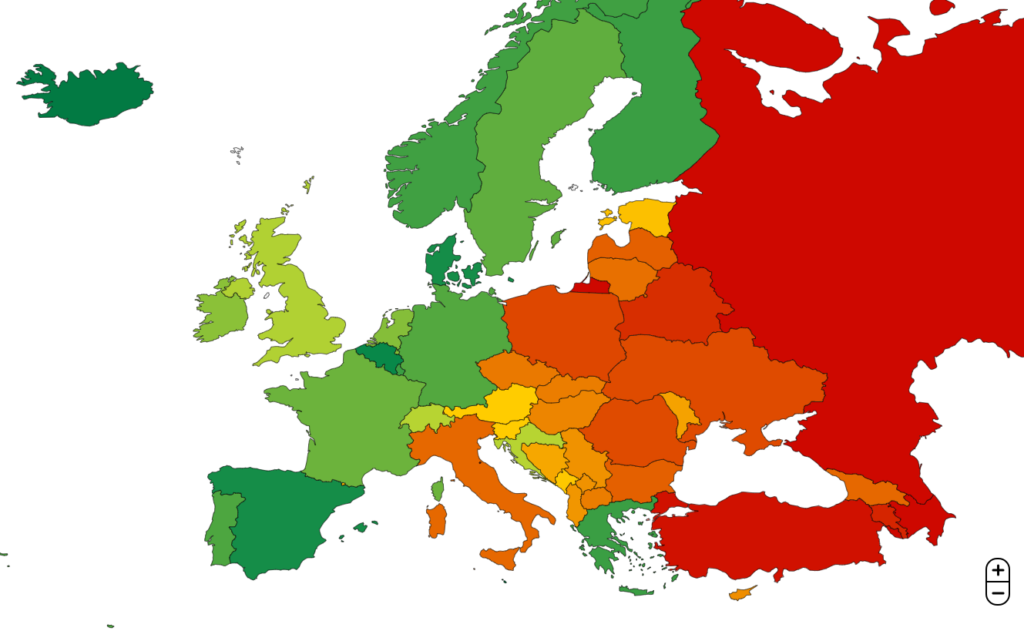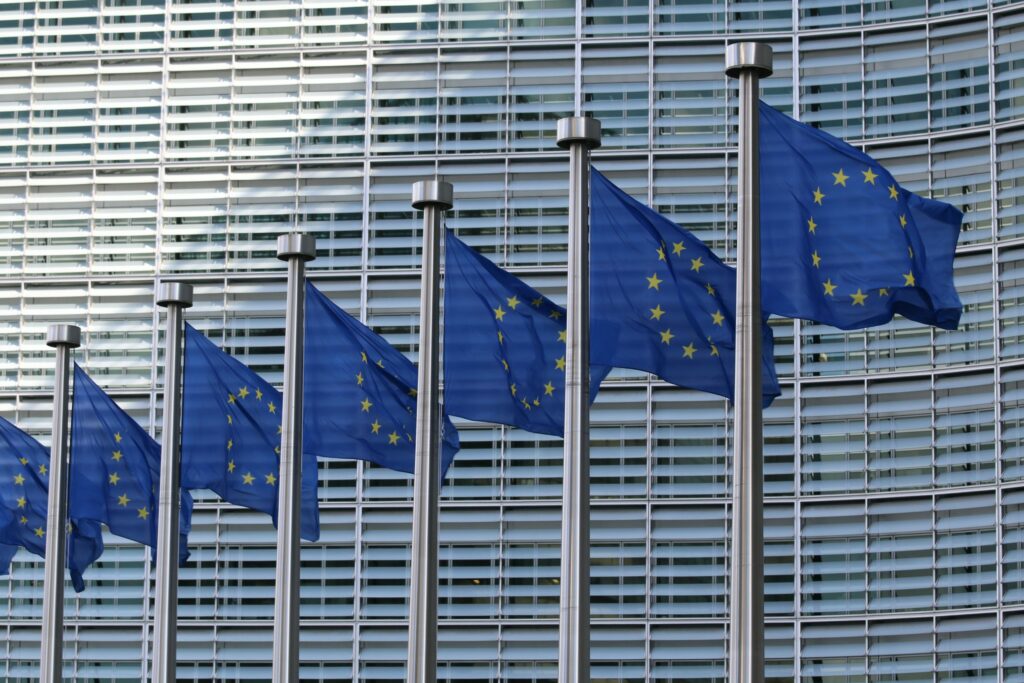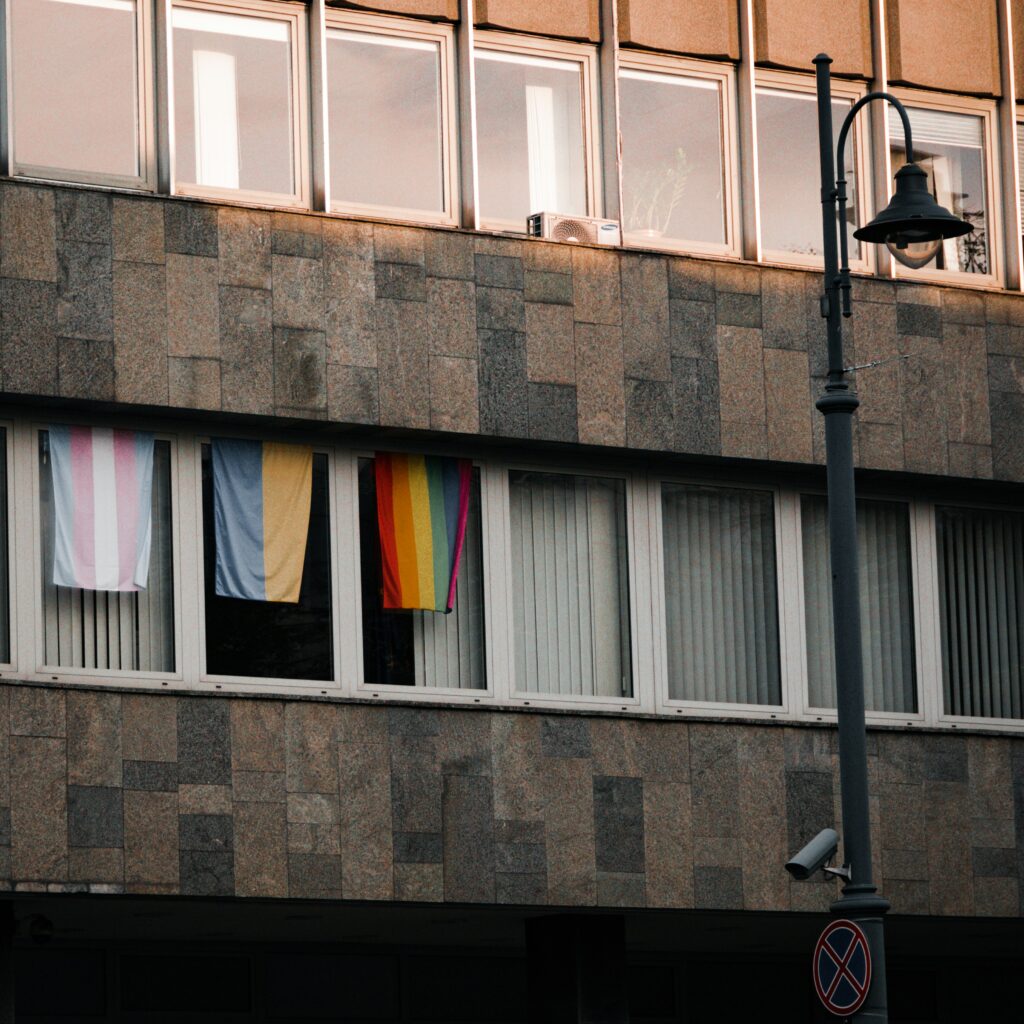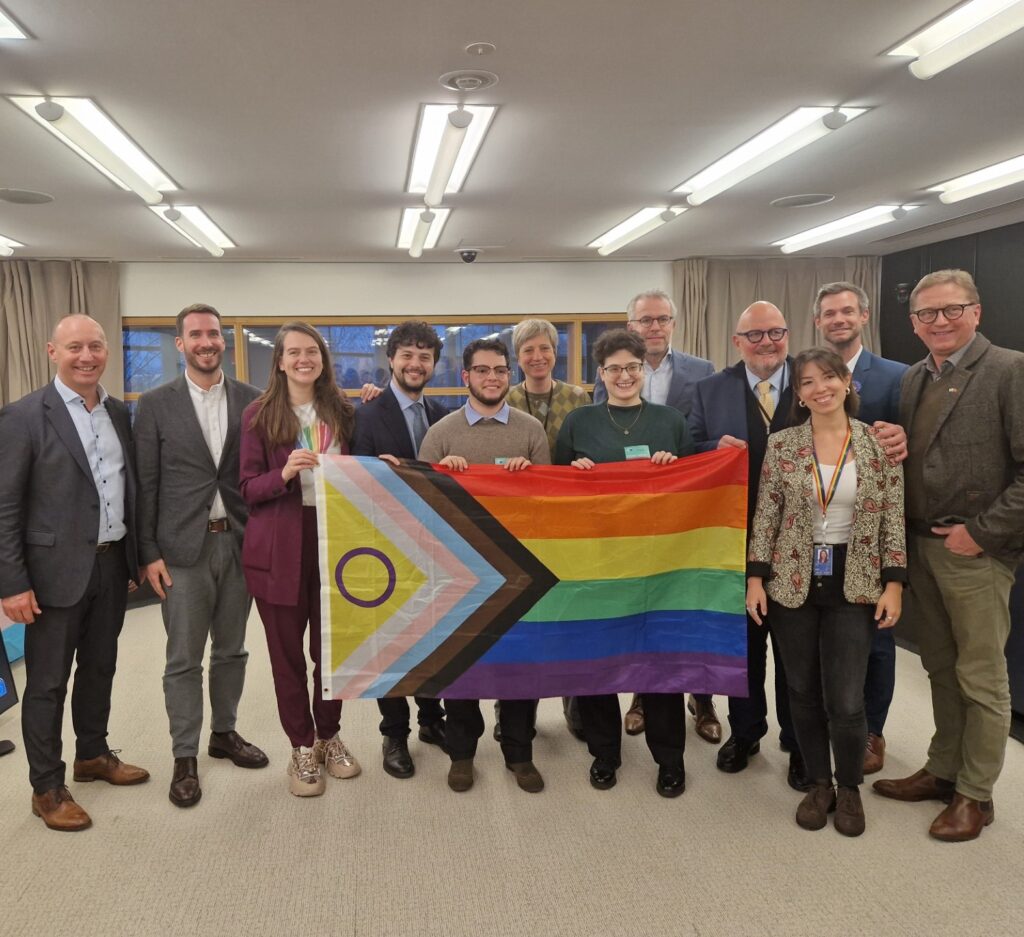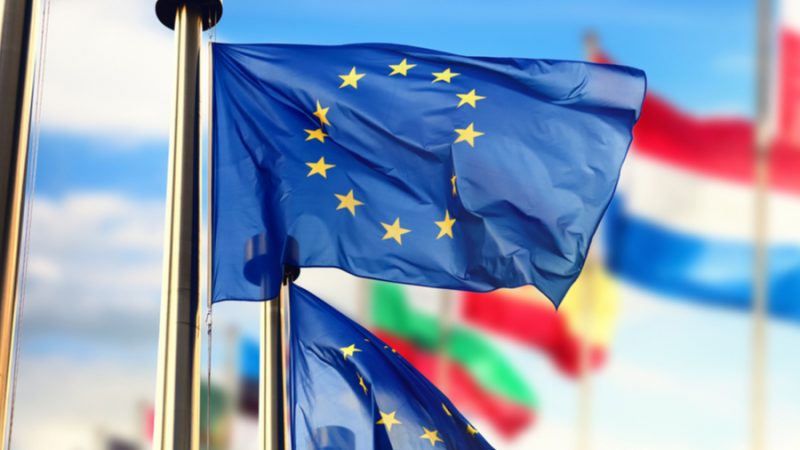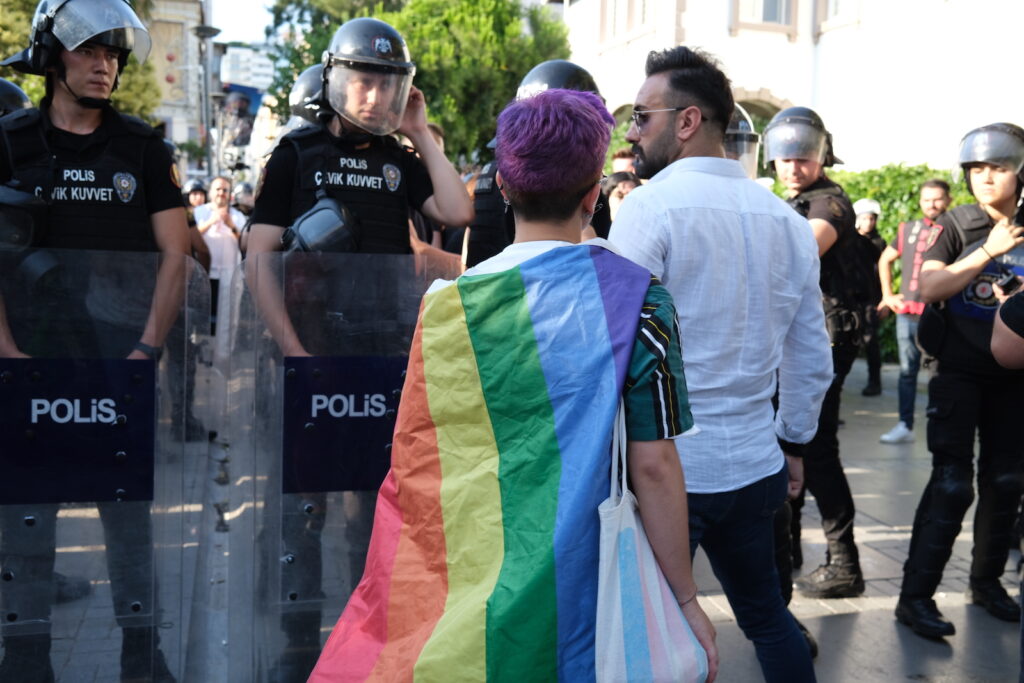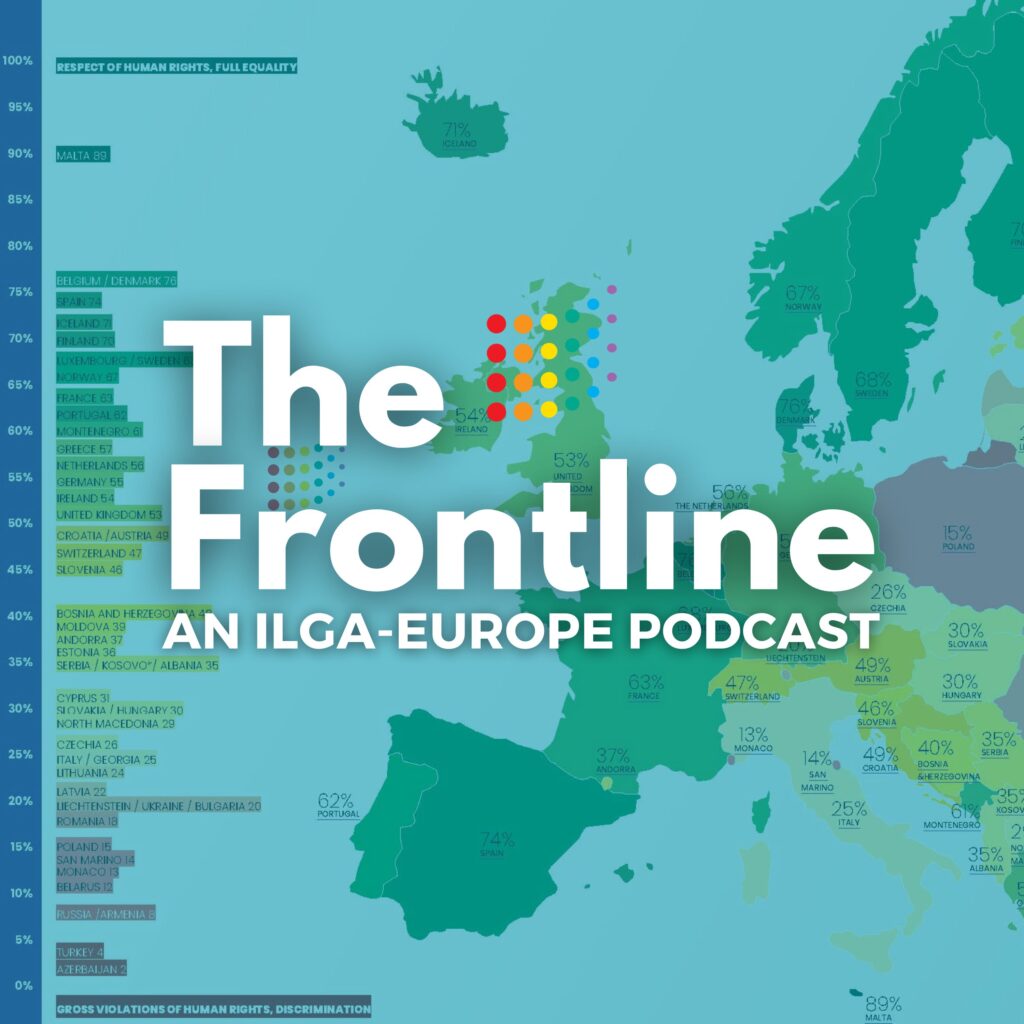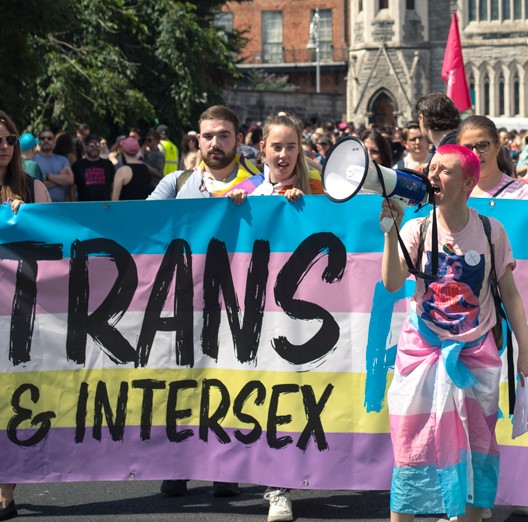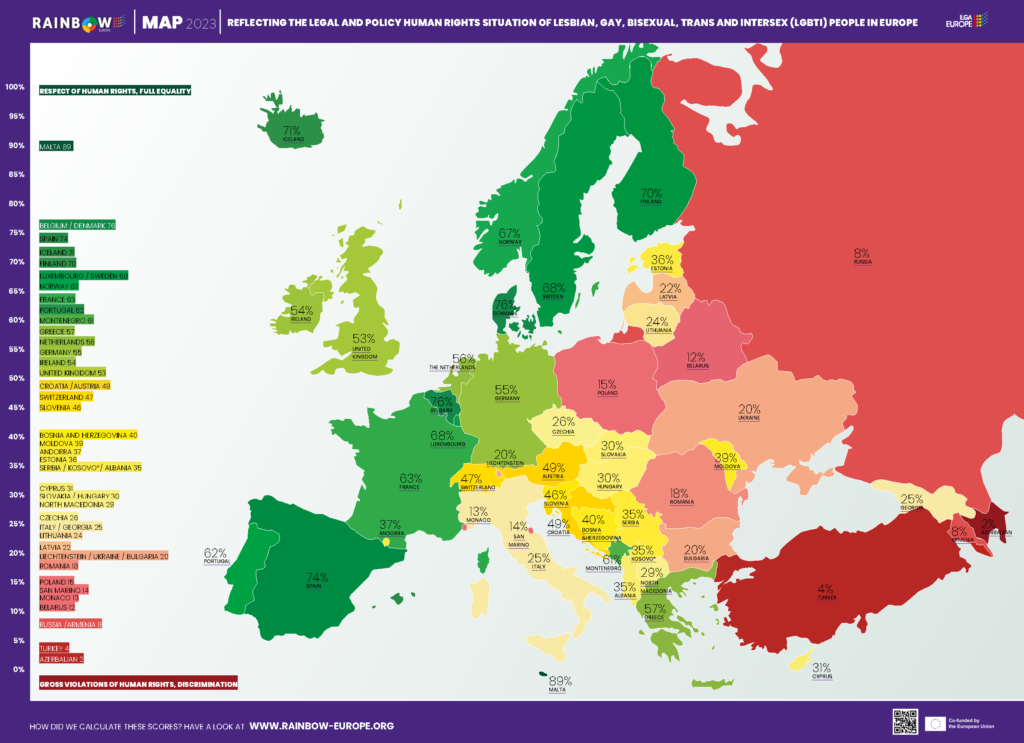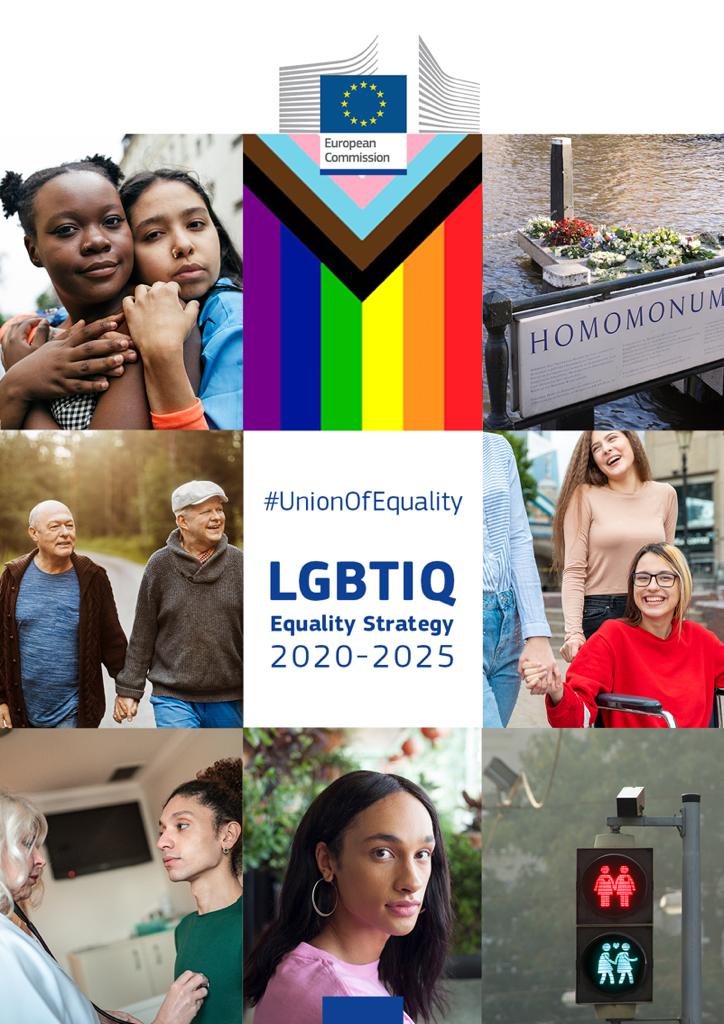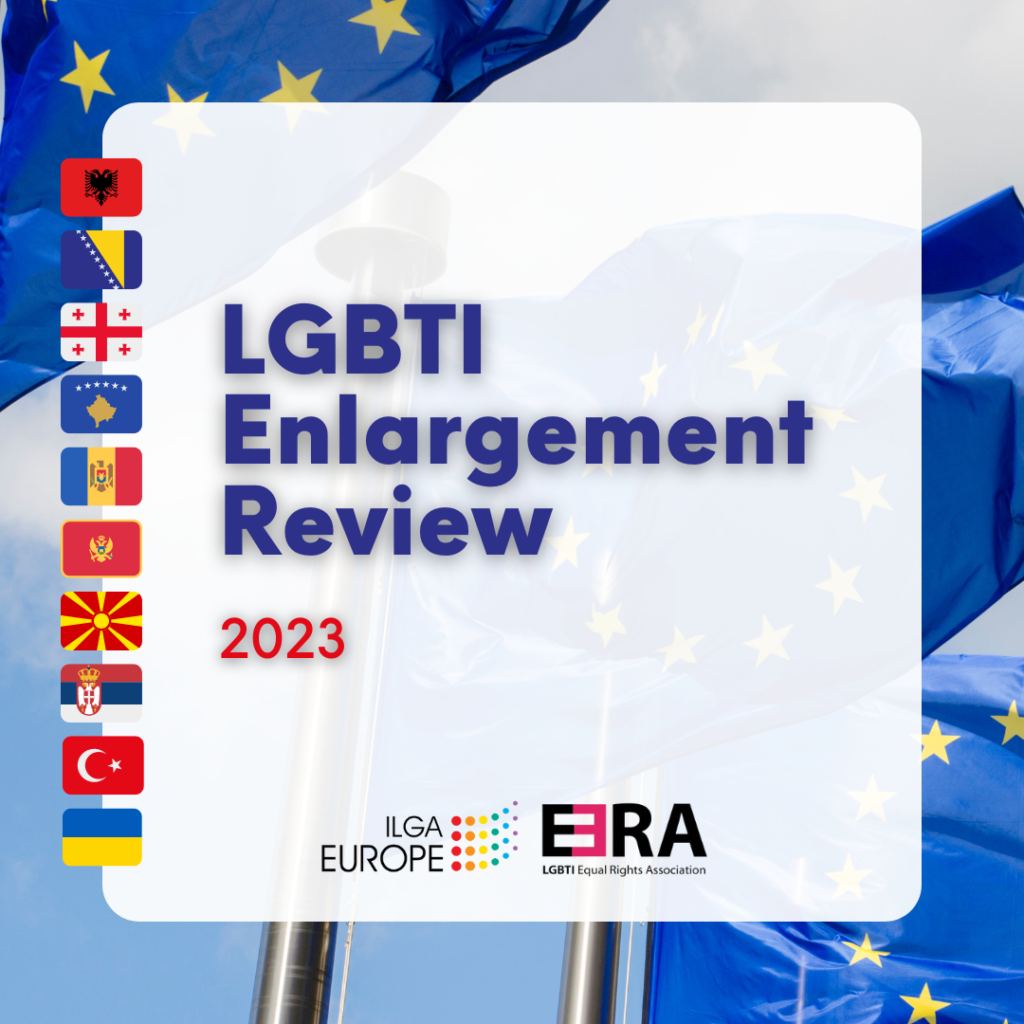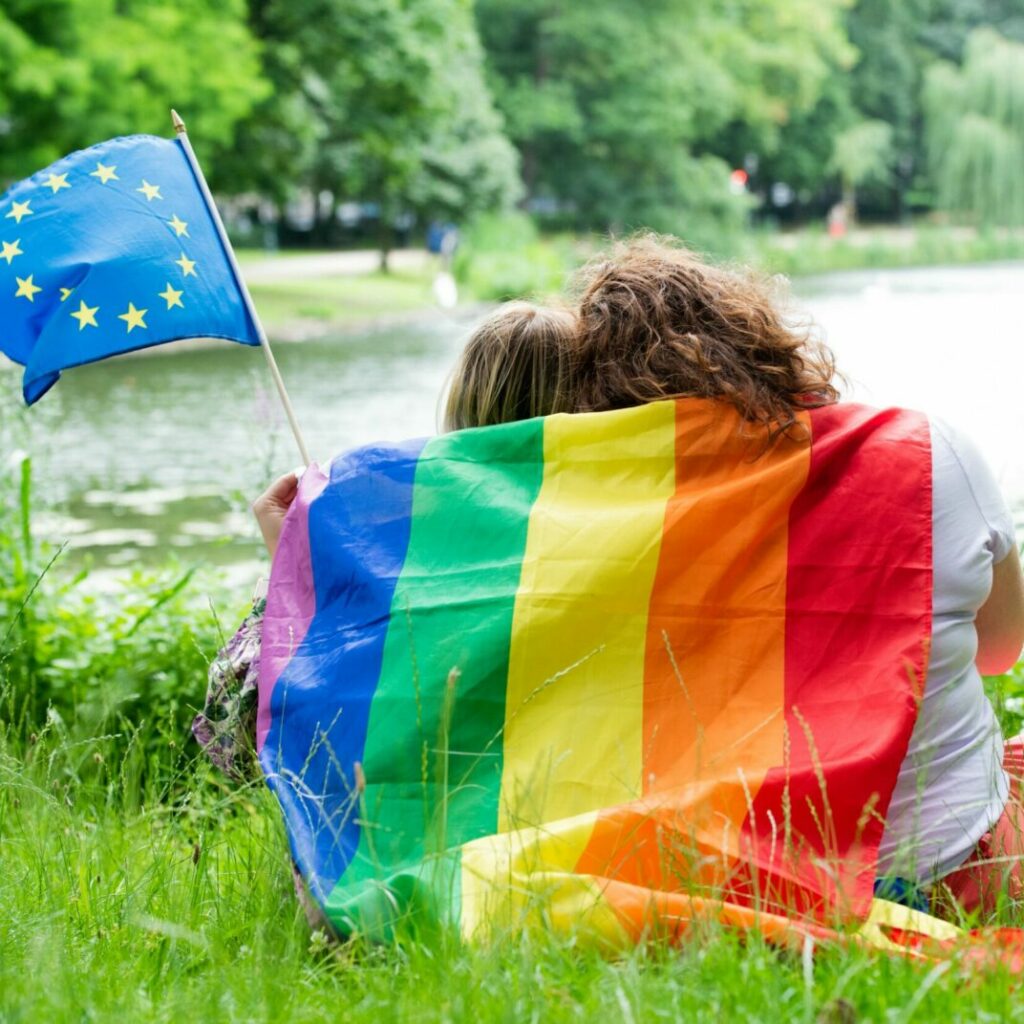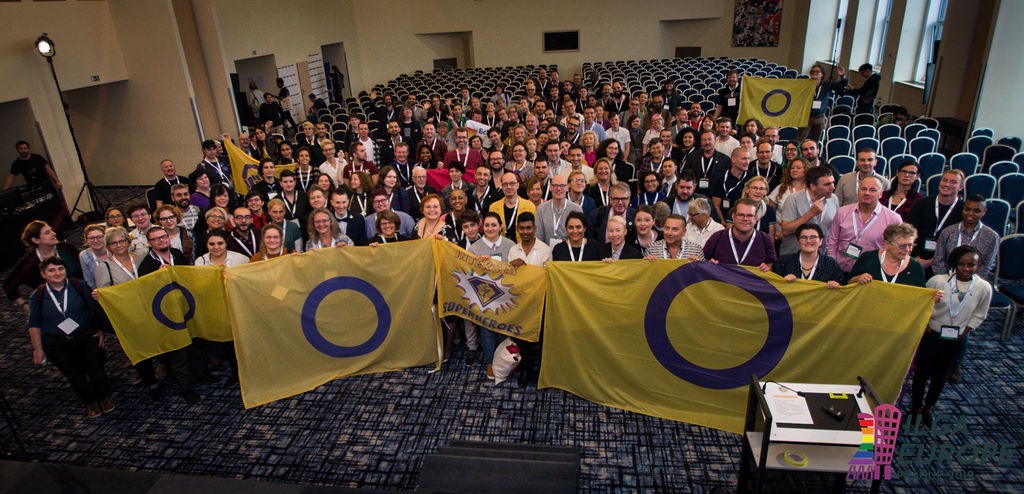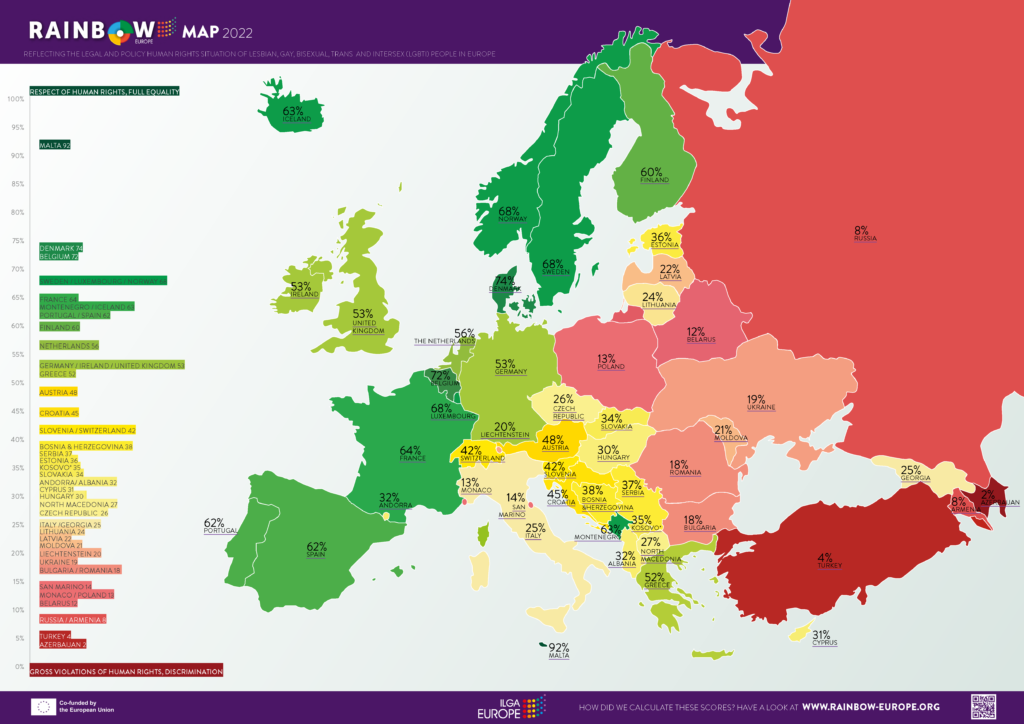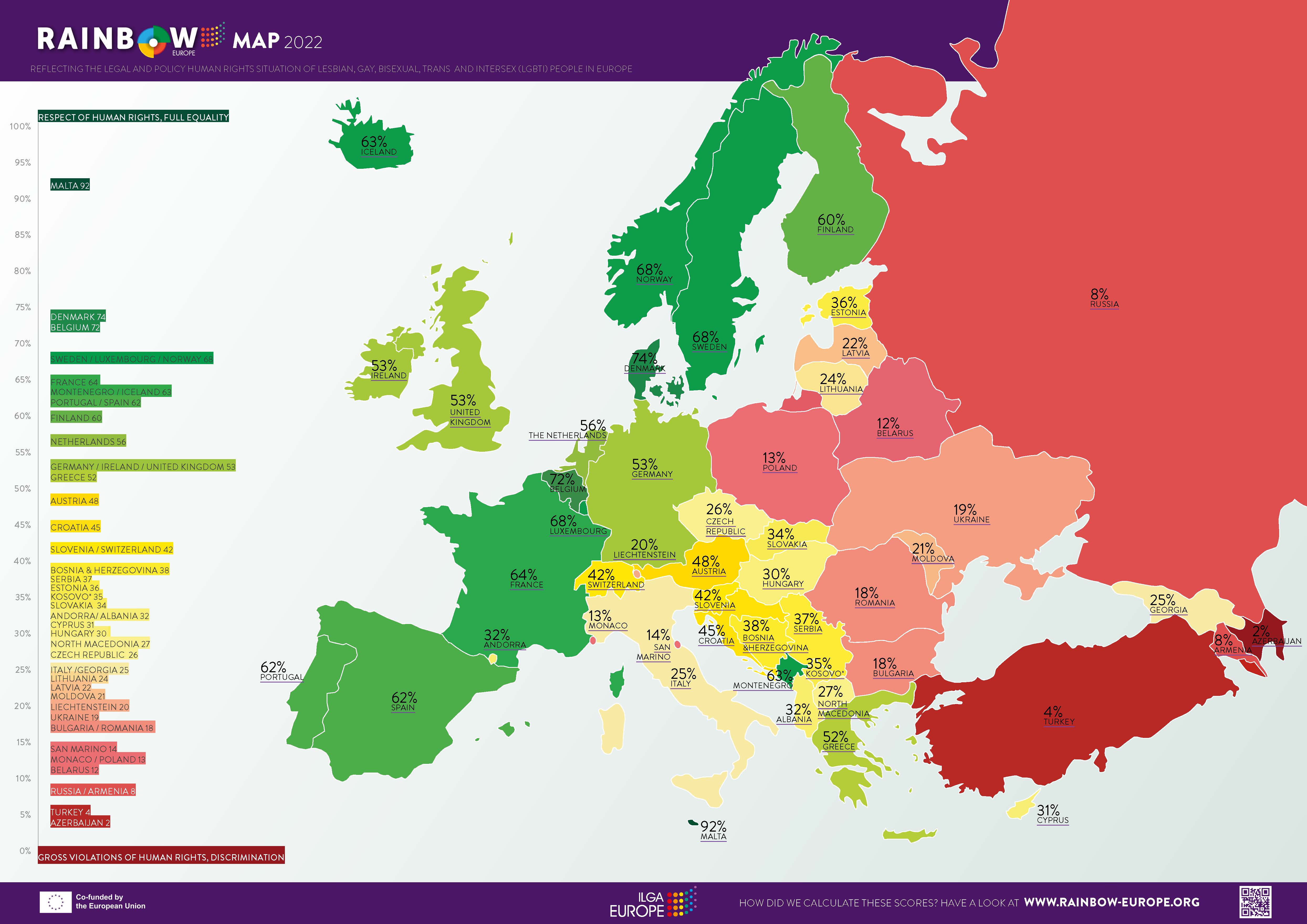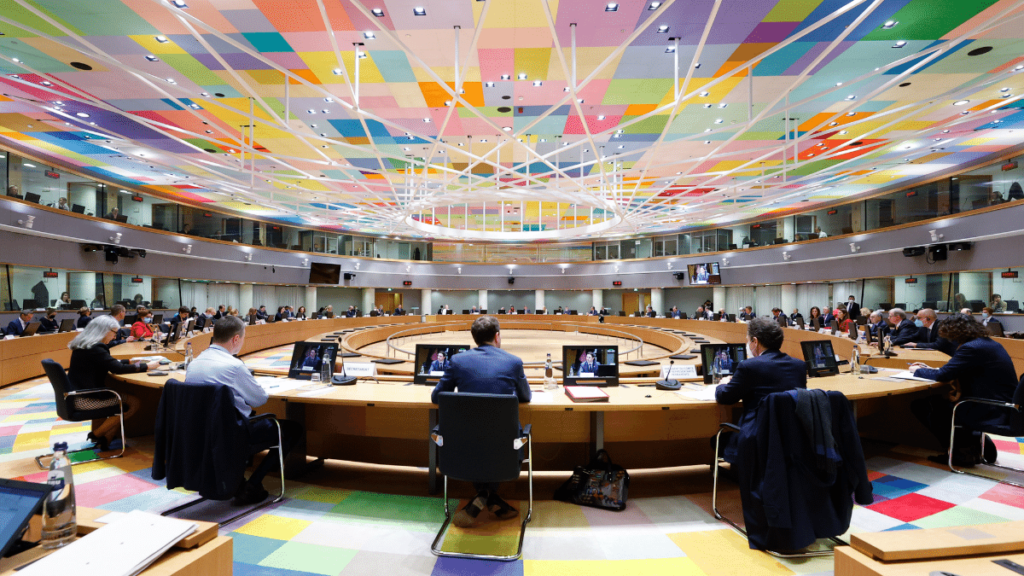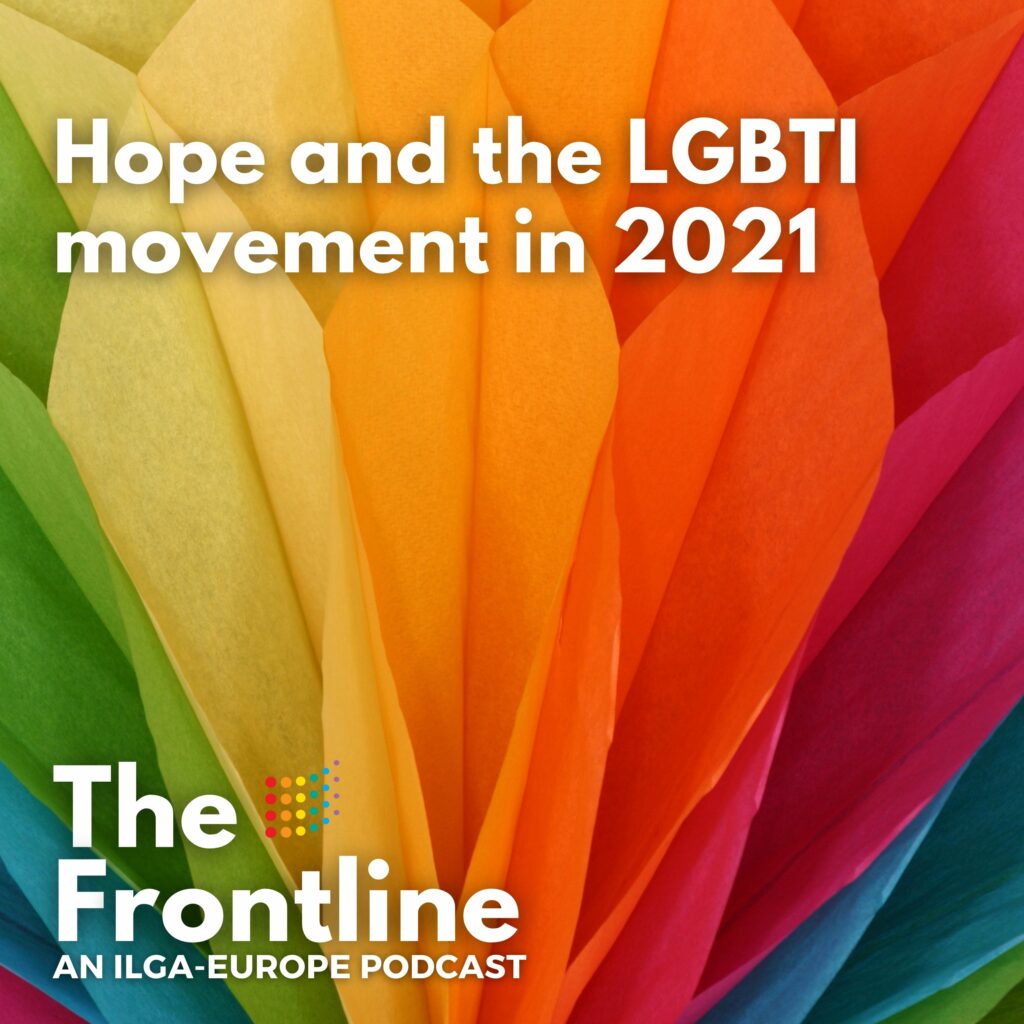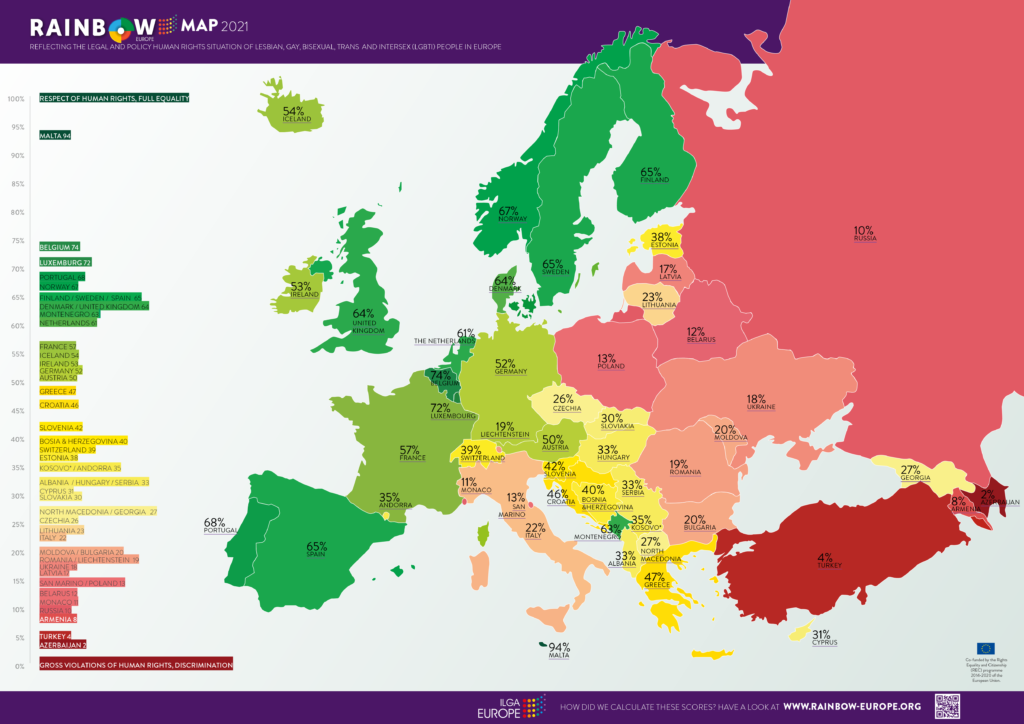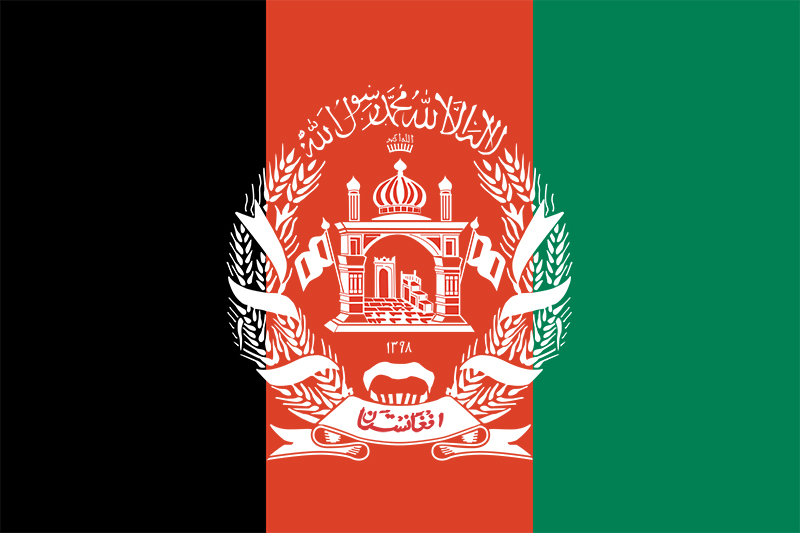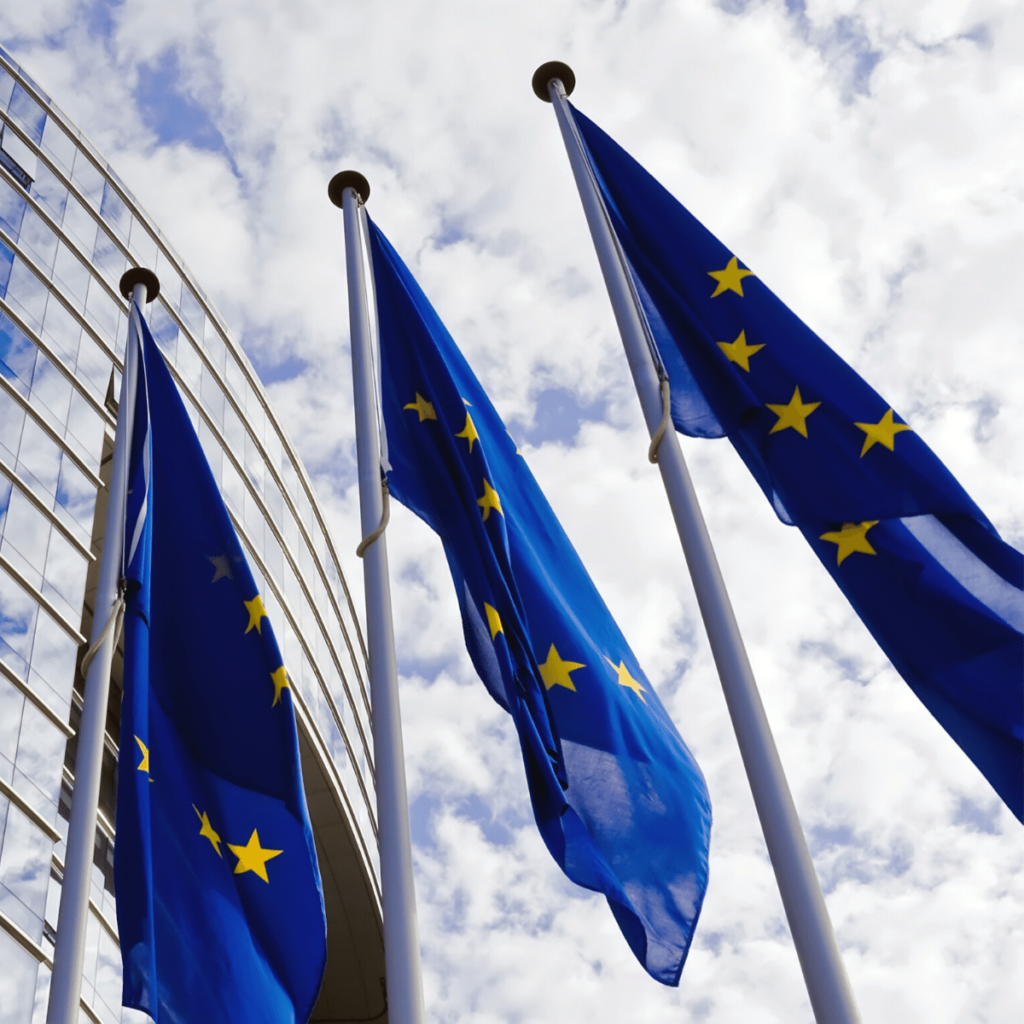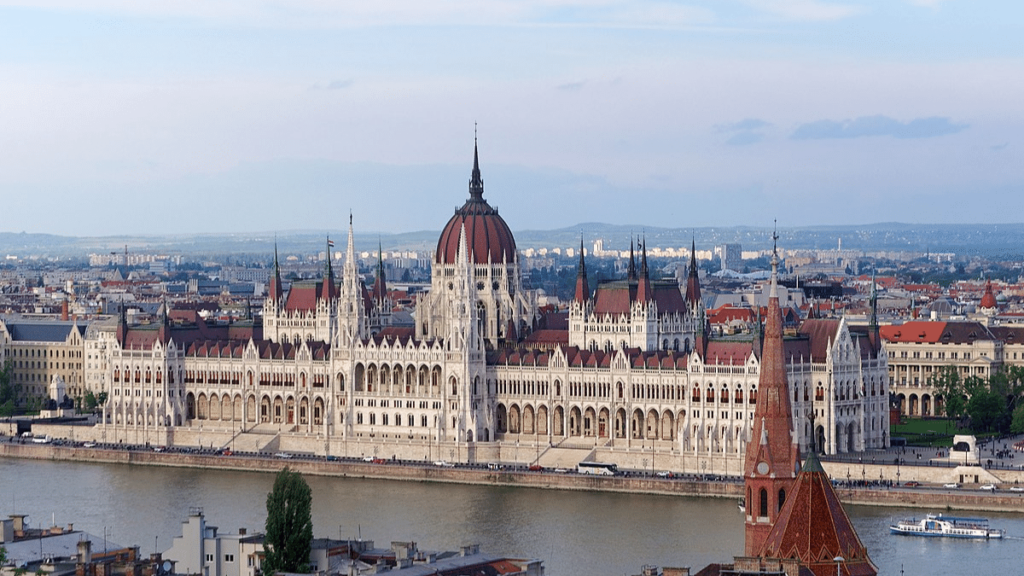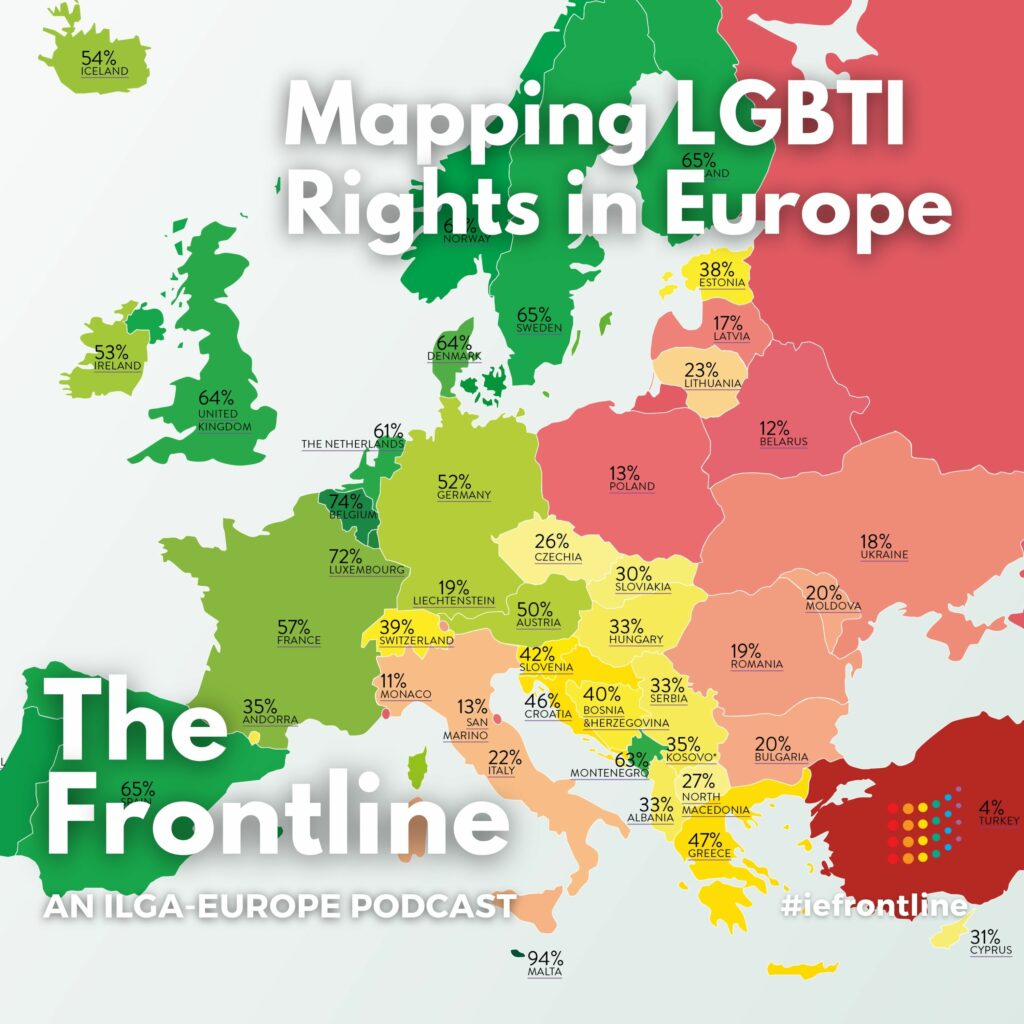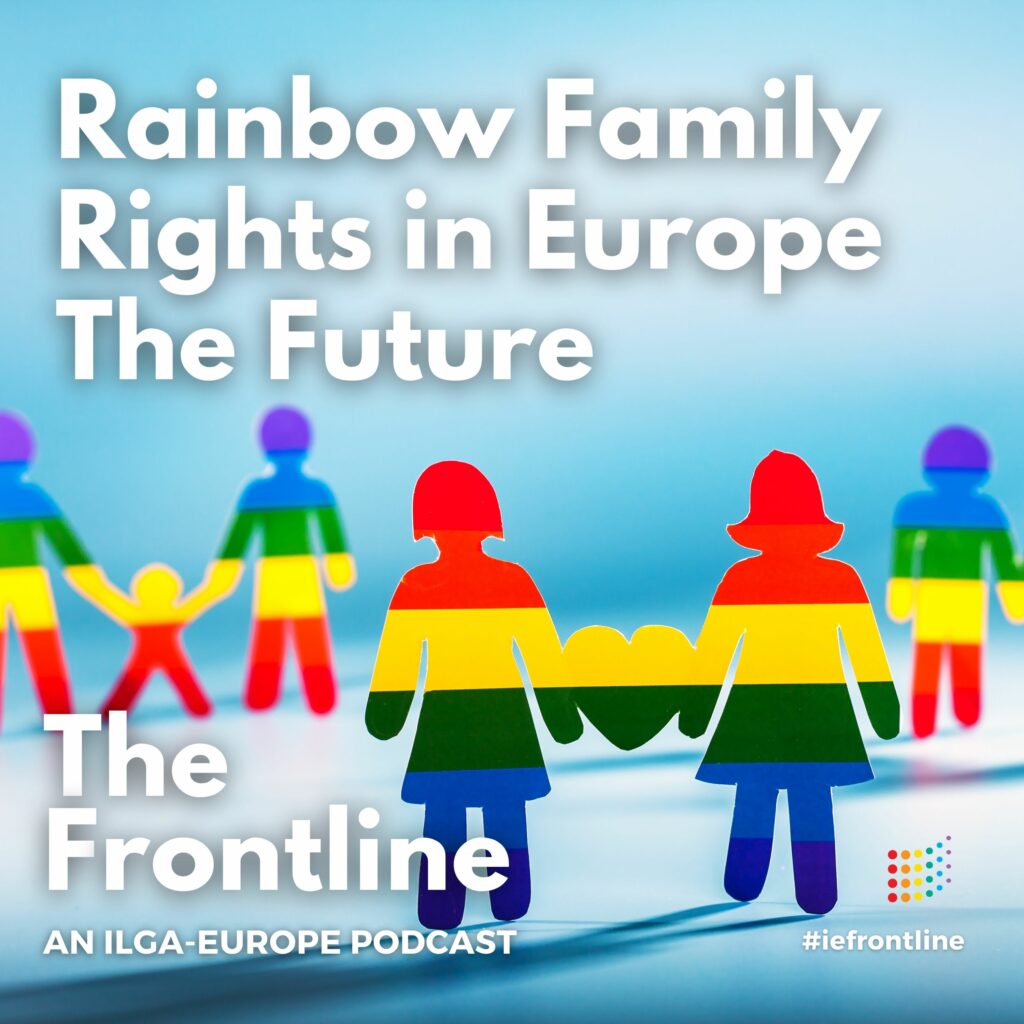Estonia
Categories Score
The full bar chart stands for 100%, and is filled by the country category score. The colour display uses the traffic light palette, with Green representing a score closer to 100% and Red a score closer to 0%.
ASYLUM
This category looks into laws that expressly include SOGISC as a qualification criteria for seeking asylum. We also take into account other legislation, policies, instruction or positive measures by state actors that are related to asylum addressing the needs and rights of LGBTI asylum seekers and refugees.
Criteria Compliance Ratio
Each pie charts stands for a category and is divided in slices by criteria. When a country complies with a criteria – fully or in some regions – the slice is coloured.
Keep in mind the criteria have different weighting factor within a category; for example, the criteria Prohibition of medical intervention without informed consent (intersex) stands for half (2.5%) of the INTERSEX BODILY INTEGRITY category weighting factor (5%). Meaning that even if a country can only comply with this specific criteria within the category (1/4 total criteria) the category scores 50%.
More information on the categories and criteria weighting factors here.
Category & Criteria Table
The table lists detailed information and insights on legislation supporting each criterion status. Please use the filters for in-depth analysis.
n/a = not applicable, meaning the criteria didn’t exist in the previous Rainbow Map edition (PROGRESSION column)
- Complies
- Applicable in some regions only
- Does not Comply
RECOMMENDATIONS
In order to improve the legal and policy situation of LGBTI people in Estonia, ILGA-Europe recommend:
- Reforming the legal framework for legal gender recognition to be fair, transparent, based on a process of self-determination and free from abusive requirements (such as sterilisation, GID/medical diagnosis, surgical/medical intervention, compulsory divorce or age restriction).
- Depathologisation of trans identities.
- Adopting a National LGBTIQ+ Action Plan.
- Adopting and implementing effectively hate crime and speech laws that explicitly cover all bias-motivated crime and speech based on sexual orientation, gender identity, gender expression, and sex characteristics.
Annual Review of Estonia
In our Annual Review of the Human Rights Situation of LGBTI People in Europe and Central Asia, we examine the advances made and provide concrete examples of on-the-ground situations at national level country-by-country in the 12 months from January to December 2024.
Read our Annual Review of Estonia below for more details and stories behind the Rainbow Map. You can also download the Annual Review chapter (.pdf) covering Estonia.
-
In April, the government of Estonia announced the development of an action plan for equal opportunities for LGBTI people, focusing on improving their security and ensuring fair treatment.
The plan addresses four key areas: safety, education, health, and employment, with particular attention to the wellbeing of trans people. Minister of Social Protection Signe Riisalo emphasised the plan’s goal of fostering a supportive and safe environment for LGBTI people in all areas of life, noting that this is not always the current reality in Estonia.
In June, the Estonian LGBTI Association expressed support for a draft law aimed at enhancing gender equality and equal opportunities. The draft law seeks to address gaps in the Equal Treatment Act, which does not fully prohibit discrimination based on sexual orientation or gender identity, and the Gender Equality Act, which lacks explicit protections for gender identity, gender expression, and gender characteristics. In September, the government introduced the draft law, initiating formal discussions on its implementation.
-
In January, a law recognising same-sex marriage and joint adoption by LGBTI couples came into effect in Estonia. Initially approved in June 2023, the law also outlines the option for same- sex couples in registered partnerships to convert their status to marriage.
-
Since March, Estonian blood centres have updated their donor selection criteria to allow men having sex with men to donate blood on the same terms as men who have sex with women.
Previously, Estonia had reduced the permanent ban on blood donations from men who had sex with men to a 12-month restriction, and later to four months as of 2022.
-
In May, the European Union Agency for Fundamental Rights (FRA) released the results of its 2024 “LGBTIQ equality at a crossroads – Progress and challenges” survey. The findings for Estonia revealed that 62% of LGBTI respondents often or always avoid holding hands with their same-sex partner, 40% steer clear of certain locations due to fear of assault, and 48% reported being harassed in the year prior to the survey.
-
On IDAHOBIT, the Minister for Foreign Affairs Margus Tsahkna emphasised that human rights must be upheld for everyone, regardless of sexual orientation. He highlighted that rainbow flags were displayed at the Ministry of Foreign Affairs and its global offices to symbolise opposition to discrimination based on sexual orientation and gender identity.
-
The latest survey by the Estonian Human Rights Centre revealed increasingly positive attitudes toward LGBTI people in Estonia, with notable shifts among non-Estonian speakers. Over half of respondents (56%) consider homosexuality completely or somewhat acceptable, with 64% of Estonian speakers and 39% of non-Estonian speakers expressing this view. However, 38% of respondents still regard homosexuality as somewhat or completely unacceptable, often citing perceptions of it as abnormal, unnatural, or untraditional.
-
In July, the Estonian Human Rights Centre took up the case of a Russian trans woman and her partner, advocating for their right to be recognised as a family in Estonia. The Police and Border Guard Board had previously denied recognition, citing the absence of marriage or cohabitation registration in Russia.
The full Annual Review for 2025 is available here.



